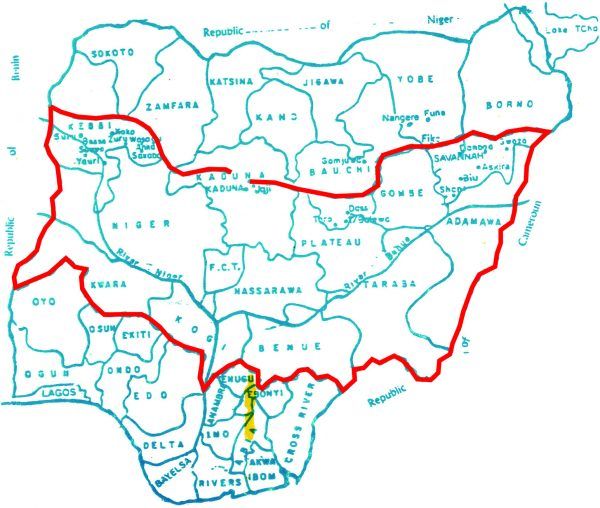The Middle Belt Forum has reiterated its commitment to the restructuring of Nigeria, saying that it was the key to the unity of the country.
The region has also warned that the prevailing system in the country has led to the marginalisation of minority groups and called for immediate restructuring to redress the injustice.
Dr. Bitrus Pogu, MBF’s National President, represented by the National Organising Secretary, Emmanuel Alamu, made this known while speaking on the sidelines of a two-day symposium on restructuring in Kaduna yesterday.
The symposium organised by the Rebirth Group had in attendance participants from various ethnic communities in Nigeria, including the Ohanaeze Ndigbo, Afenifere, Arewa Youths Consultative Forum, and the Middle Belt Forum.
Pogu lamented that the Middle Belt has historically been marginalized and excluded from key decision-making processes in the country and noted that things needed to change.
“When this country was created, some of us in the North were referred to as minority, and we actually preferred to call ourselves ethnic nationality. We have not been carried along. There was no time anything was going to happen, and we sat on the negotiating table.”
According to him, the Middle Belt region does not support the disintegration of Nigeria but rather believes in the togetherness of the country but stressed that if Nigeria was to remain united, it must be restructured to address the underlying issues that have led to marginalization and inequality in the system.
He said the Middle Belt has been treated as secondary to other regions in the north, with some individuals being considered “more north” than others.
He also argued that this kind of mentality has led to the exclusion of the Middle Belt from key decision-making processes and has hindered its development over the years.
On his part, the convener of the gathering, Owolabi Oladejo, said the objectives of The Rebirth Group, was to promote a restructured Nigeria, where every group or ethnic nationality would have a sense of belonging.
The symposium with the theme “Envisioning Nigeria’s Future: Addressing the National Question,” brought together experts and stakeholders from across the country to discuss the possibility of restructuring Nigeria.
Meanwhile, a communiqué issued at the end of the programme resolved that the current structure of Nigeria is responsible for the country’s problems and that restructuring is the way forward.
The communiqué signed by Olaolu Abogunloko, the Chairman, said: “The way Nigeria is presently structured and is being run is largely responsible for why the country is not working in the interest of Nigerians. ”
Participants recommended that Nigeria should be reorganized into regions, with each region having more powers over its affairs. The central government, according to the recommendation, should concern itself only with issues that the federating units cannot handle.
The symposium also recommended a parliamentary system of government, citing the avoidable expenses incurred under the current presidential system.
Other speakers at the symposium included Dr. P. S. Zira, who spoke on “Restructuring: Pathways to True Federalism”; Lady Jennifer Nakpodia, who spoke on “Economic Restructuring for Sustainable Development”; and Honourable Yusuf Idris Amoke, who spoke on “Unity in Diversity: Building a Cohesive Nigerian Identity”.
The symposium also featured contributions from participants in the Diaspora, who joined the discussion via Zoom.















